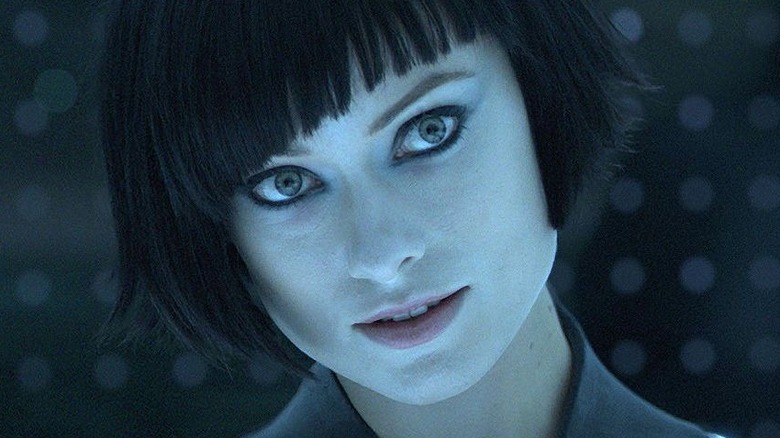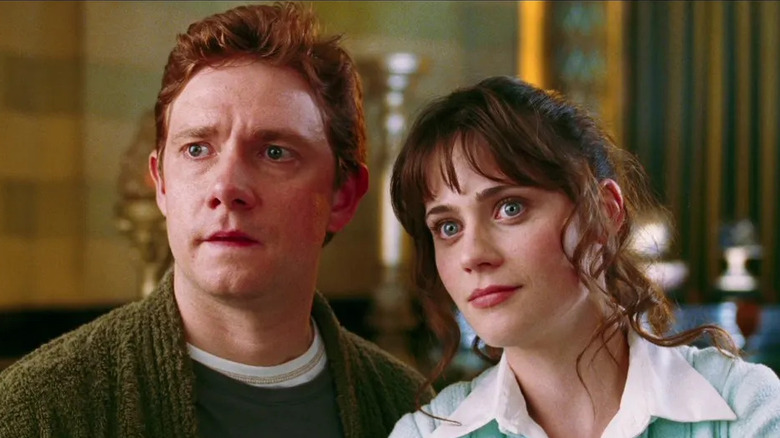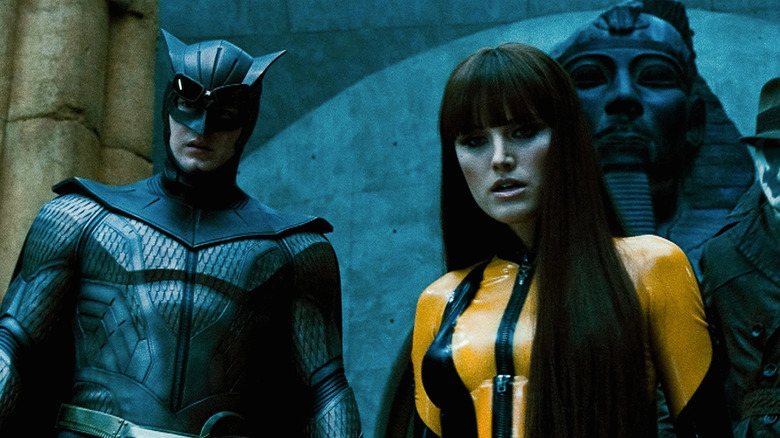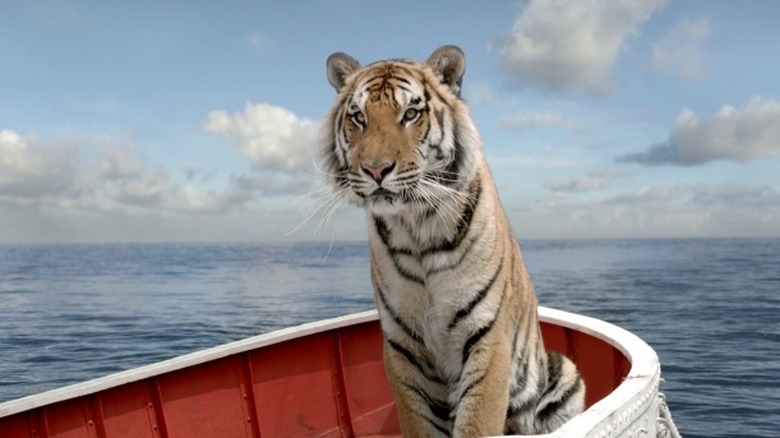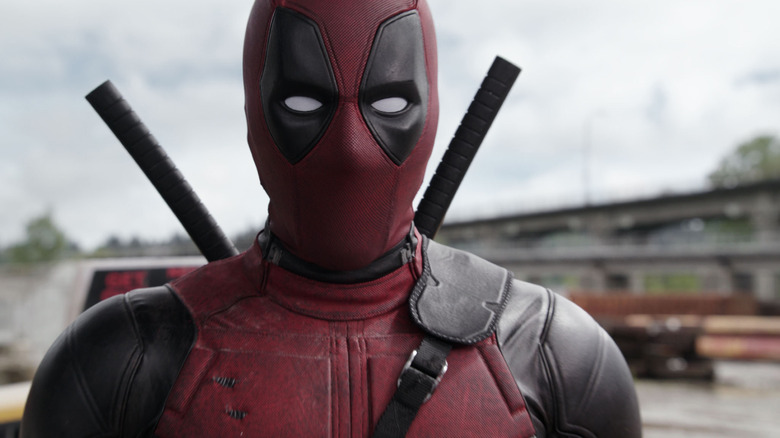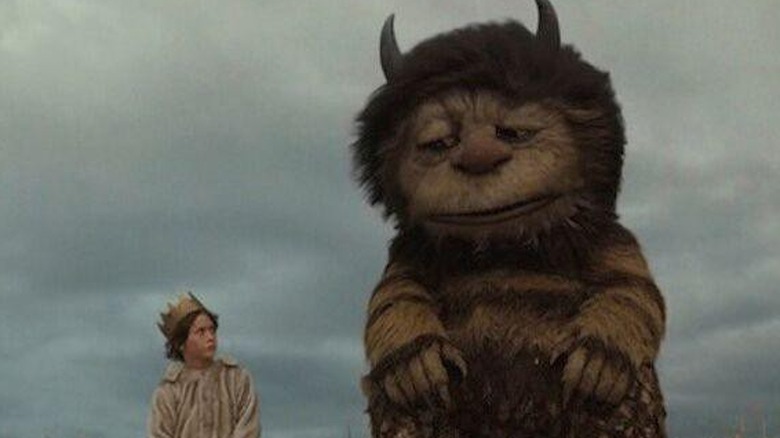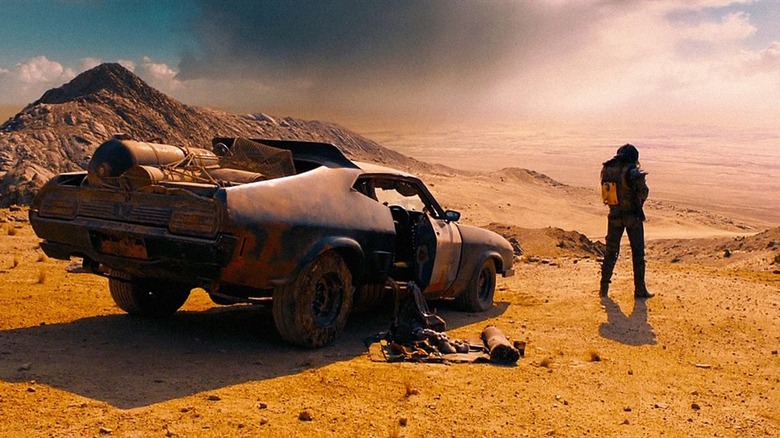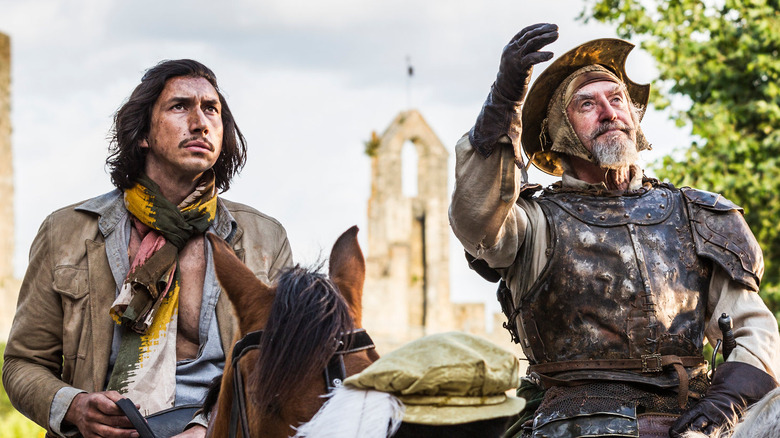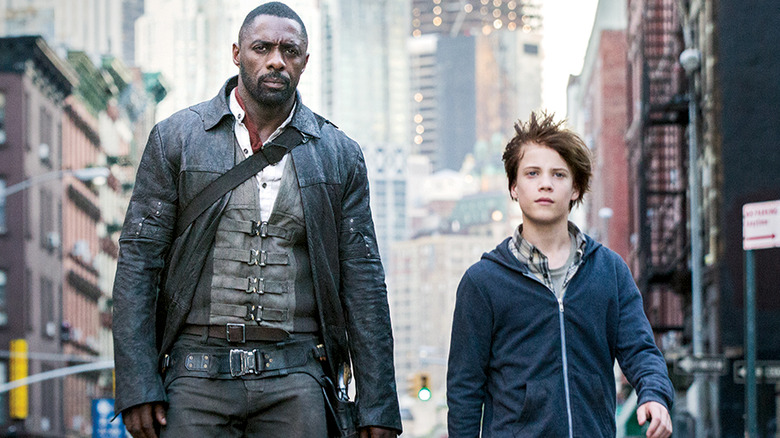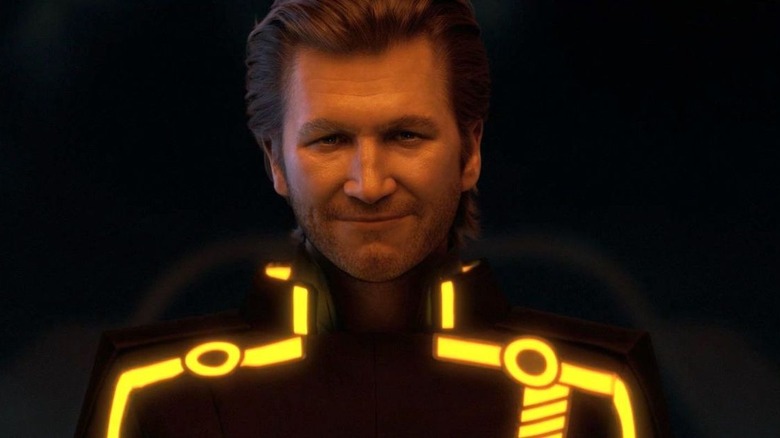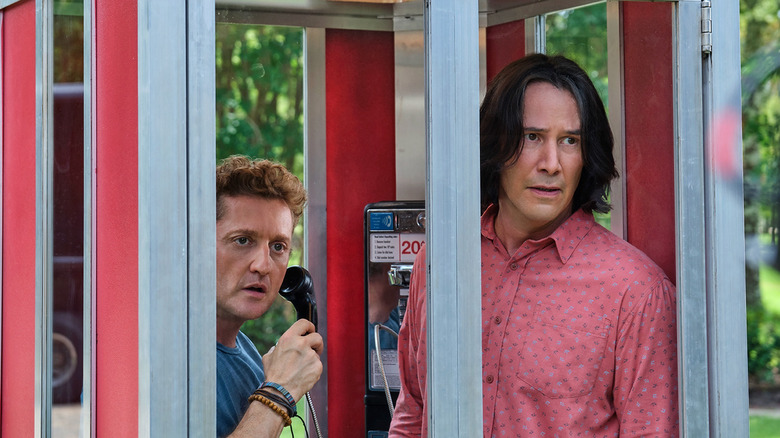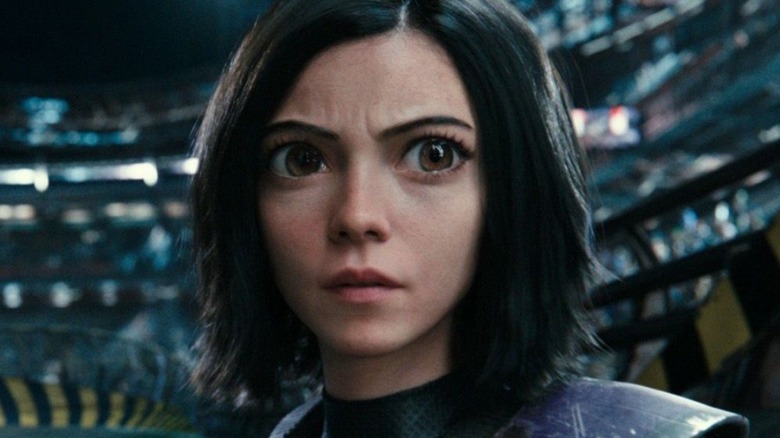Movies That Escaped Development Hell
Production on a major motion picture is never quick and easy, let alone simple. Some of the bigger studios are now used to churning out big budget movies several times a year, with sequels and spin-offs to their most prized properties always in production. However, even the Hollywood big guns can get their barrels jammed from time to time.
The term "development hell" is well known among film fans, especially those who keep tabs on the latest blockbuster productions in Tinseltown. It's a term reserved for the most cursed projects, the ones that drag on for years and even decades. Sometimes it's a creative issue, sometimes it's related to budget. Films get stuck in development hell for a myriad of reasons, and many never make it out. But what about the ones that do?
Movies that are years in the making rarely turn out to be masterpieces, but some have managed to come through the fires of development hell relatively unscathed.
The Hitchhiker's Guide to the Galaxy
Though it never got the sequels that fans were hoping for, "The Hitchhiker's Guide to the Galaxy" was a triumphant big screen launch for a franchise that had taken quite a long road to theaters. "The Hitchhiker's Guide to the Galaxy" debuted as a radio play in the late 1970s. A series of novels from creator Douglas Adams followed, and a BBC television miniseries dropped in 1981. It wasn't until 2005 that "The Hitchhiker's Guide to the Galaxy" hit the big screen, with Martin Freeman, Zooey Deschanel, Mos Def, and Sam Rockwell among the cast. The film took quite a trip through development hell en route to cineplexes.
The history of the film stretches back to 1982 when Ivan Reitman started working on an adaptation. Douglas Adams moved to Hollywood in 1983 to work on it full-time, and he churned out several drafts, leading to a well-known 1987 screenplay. At one point, Reitman went to his friend and frequent collaborator Dan Aykroyd about the role that eventually went to Mos Def, but the "SNL" veteran demurred and instead hired Reitman to make "Ghostbusters," sending "Hitchhikers" back to the drawing board.
Throughout the 1990s Adams seemed adamant that the film was still in development in various interviews, but nothing ever materialized. By the 2000s, however, sci-fi franchises were en vogue and director Jay Roach used the newfound influence he'd earned helming "Austin Powers" and "Meet the Parents" to pressure Disney into making the "Hitchhikers" movie a priority. Thankfully, Adams was able to write an updated screenplay before his death in 2001, and the movie came out to generally positive reviews four years later.
Watchmen
It was Zack Snyder who finally brought Alan Moore and Dave Gibbons' "Watchmen" to the big screen, but he was far from the first director attached to this long-gestating project. It all started in 1987 when 20th Century Fox optioned the film and asked the book's author to write the screenplay. Moore declined, so they turned instead to Sam Hamm, who had just penned the script for Tim Burton's "Batman." Hamm's early script reportedly twisted the movie into a time travel story, but by the early 1990s it wasn't going anywhere, and Fox's option lapsed.
Warner Bros. picked it up with producer Joel Silver and quickly attached director Terry Gilliam. The film was given a then-huge $100 million budget, but it never got off the ground. Gilliam concluded that it would work better as a TV series, and interest in a movie waned. By the 2000s, Universal was involved. The studio managed to get the project rolling again, this time with writer David Hayter.
Some test footage with Ray Stevenson as Rorschach and Iain Glen as Night Owl was shot, but Hayter ultimately left the project over creative differences. Over the next few years, both Darren Aronofsky and Paul Greengrass got involved, but the film eventually fell at the feet of Zack Snyder. "Watchmen" hit the big screen in 2009, with some (but not all) of Hayter's original ideas intact. It wasn't well received across the board at the time but has since become known as an underrated movie.
Life of Pi
Ang Lee's "Life of Pi" is an award-winning drama about a boy and a tiger adrift at sea in a small boat. It's based on the hit novel by Yann Martel, which was optioned for a movie adaptation not long after its 2001 publication. Despite this, it took over a decade for a film to come to life. In the early 2000s, M. Night Shyamalan came close to sitting in the director's chair. "When I was approached to do the film, I wanted more time," he explained to the Hindustan Times. "The production house wanted me to do it right away, but I'm sure they had their reasons. It took them six years to find another director."
Alfonso Cuarón — fresh off helming "Harry Potter and the Prisoner of Azkaban" — was in talks at one stage, though he wasn't attached for long. Around six months later, in October of 2005, "Amelie" director Jean-Pierre Jeunet boarded the project. "We bought the book three years ago, and so many filmmakers were passionate about it, but we felt a responsibility to the material and Yann Martel to wait for the right one at the right time," Fox exec Elizabeth Gabler told Variety.
Jeunet worked on the film for two years before he lost patience with the slow process. "At the end I was so starving to shoot," he told Fade In. "I could have continued to look for solutions but [instead] I said, 'I [have to] leave now. I need to make a film.'" The project was firmly stuck in the mud when Ang Lee entered talks to direct in 2009. Rumors of budget issues continued to plague the film, but it eventually got over the line, dropping to critical acclaim in 2012.
Deadpool
It's hard to imagine today, but there was a time when nobody in Hollywood thought a Deadpool movie was worth a shot. Debuting in 1991's "The New Mutants" #98, the fourth-wall-breaking antihero quickly became a fan favorite. In 2000, in what Variety described as a "wide-ranging joint venture agreement," Marvel licensed the character to Artisan Entertainment for a movie. It would take more than 15 years and multiple studios before it came to fruition.
In 2004, IGN revealed that New Line Cinema was "trying to broker a deal" to make a Deadpool movie. Having worked together on "Blade: Trinity," writer David S. Goyer and star Ryan Reynolds jumped on the project as a kind of joint ticket. Fox stepped up its interest when the New Line deal didn't come off, and Reynolds was still pushing hard to star. Traction was slow until "X-Men Origins: Wolverine" got the green light and Reynolds joined the cast as an early version of the character. Fox hoped this would serve as a launching pad for a spin-off movie.
In 2010, Rhett Reese and Paul Wernick were hired to write a screenplay, and a then-unknown Tim Miller later got the nod as director (after Robert Rodriguez reportedly declined an offer). However, after Reynolds' star power took a hit following the failure of "Green Lantern," Fox got nervous and hit the brakes. It wasn't until 2014, more than a decade after Reynolds first got involved, that "Deadpool" got rolling again. The actor (or one of his partners in crime) leaked some test footage, hoping that people would want to see more. The reaction from the public was enough to convince Fox that Reynolds' vision for the character had great potential. "Deadpool" changed the superhero movie genre forever when it hit cinemas in 2016.
Where the Wild Things Are
A children's classic, "Where the Wild Things Are" is a 1963 book by Maurice Sendak. Work began on a film version under the stewardship of John Lasseter in 1983, with the future Pixar boss planning to use early CGI to craft an animated adaptation. His efforts resulted in a famous test animation sequence, but the footage didn't help move the project forward much. The film languished, sitting on the shelf until the rights reverted to Sendak.
In the 1990s, Sendak and producer John B. Carls formed Wild Things Productions to get things back on track. They signed a deal with TriStar Pictures and hired Spike Jonze, but an executive reshuffle changed things. "They didn't like my ideas, and they thought it would cost too much," Jonze said of the new people in power (via The New York Times). TriStar decided to pull out and the rights eventually ended up with Universal.
Universal hired director Gore Verbinski in 1999, and Tom Hanks was also involved as a producer, per Variety. By 2001, Verbinski was out and Disney animator Eric Goldberg (who co-helmed "Pocahontas") found himself in the director's chair. Skip forward another two years and there's an old face in the hot seat: Spike Jonze came back aboard in 2003.
The first teaser for "Where the Wild Things Are" actually dropped in 2000, shown before theatrical screenings of "How the Grinch Stole Christmas." Almost a decade passed before it came out in cinemas itself. The project entered production in 2007 and had a predictably bumpy ride — at one stage Warner Bros. execs were reportedly so unhappy with how Jonze's film was shaping up that they were considering starting over. "Where the Wild Things Are" was released in 2009 after more than 25 years in development hell.
Mad Max: Fury Road
Sequels in beloved franchises often make lengthy stays in development hell, and few were trapped there longer than "Mad Max: Fury Road." It all started in 1987 when series creator George Miller dreamed up a story that was one long chase sequence with very little dialogue. In an interview with Collider in 2015, Miller revealed that he wasn't really keen to make it at the time, having been burned out on the previous film.
His stance softened over the years, and by 2001, production was actually ready to kick off. Few expected original series star Mel Gibson to return, with a young Heath Ledger rumored to be replacing him. Things quickly went south following the attacks on 9/11, which led to problems with both equipment and money. "We were financed in American dollars and shooting in Australian dollars, and we lost 25 percent of our budget," Miller said (via the Daily Beast). "We looked to see what we could cut, but it would have compromised the movie."
In 2007, Miller announced that a new film was being readied without Mel Gibson's involvement. Initially, he planned to film a pair of movies back-to-back, but even when it was scaled down to one, repeated delays pushed filming back to 2012. Even after it began, budget overruns and problems with location shooting forced the studio to actually shut down production for a spell, leaving Miller fighting a desperate battle to keep his vision alive. Luckily for him, an executive shuffle worked out in his favor and Warner Bros. gave him what he needed to finish the picture. "Mad Max: Fury Road" roared into cinemas in 2015, blowing audiences and critics away.
The Man Who Killed Don Quixote
From a decades-long development to a doomed production, we're not sure we can cover every single problem that "The Man Who Killed Don Quixote" faced. Terry Gilliam's quest to adapt Miguel de Cervantes' influential 17th century novel "The Ingenious Gentleman Don Quixote of La Mancha" began in 1989. He wanted to take a 21st character and send him back in time to the 1600s, where he'd be mistaken for Quixote's sidekick Sancho Panza. When Gilliam got sidetracked with another movie, it nearly got made by Fred Schepisi with John Cleese and Robin Williams. Schepisi's film faltered and Gilliam got involved again, but negotiations with various studios forced the project into a seemingly never-ending limbo.
Gilliam met Johnny Depp while making "Fear and Loathing in Las Vegas" and believed he'd found his ideal Sancho Panza. French actor Jean Rochefort was cast as Don Quixote and filming began in Spain in 2000, but an unbelievable stretch of bad luck eventually forced it to shut down. There was a flash flood that ruined a bunch of equipment, noise from NATO jets running drills was interrupting filming, and Rochefort was in ill health. When the actor injured his back and was ruled out of filming, the shutters came down.
In 2002, the documentary "Lost in La Mancha" covered the making of the ill-fated film, but this wasn't the last chapter in the story: Gilliam wanted to try again. His attempts were curtailed by rights issues, budget problems, and insurance claims, casting a shadow over the project that led some to say it was cursed. In 2008, Gilliam restarted pre-production, but it would still be another decade before the film came out. It dropped to lukewarm reviews in 2018, with Jonathan Pryce and Adam Driver starring.
The Dark Tower
Adaptations of the works of Stephen King have been common over the years, but it took Hollywood a long time to bring what is arguably his defining work to the big screen. "The Dark Tower" is a series of novels with a sprawling sci-fi/fantasy story that spans multiple dimensions. "The Shawshank Redemption" director Frank Darabont once asked King if he could adapt it for the screen, but he declined. "I mean, this is my life's work, since the time I was 22 years old," King said at New York Comic-Con (via Slash Film). "It's very important to me."
In 2007, King struck a deal with "Lost" creators J.J. Abrams and Damon Lindelof to bring his baby to life. "Damon is just a total comic-book freak, and he loves 'The Dark Tower' books," King said. "I trust those guys." Just two years later, the project was abandoned. Speaking with PopCandy at the Austin Film Festival, Lindelof revealed that he decided against committing himself to a multi-picture franchise so soon after "Lost."
The picture picked up steam again in 2010, with Universal Studios partnering with Akiva Goldsman and Ron Howard to produce a trilogy of films and a spin-off TV series (per Variety). Javier Bardem was in line to star as Roland Deschain, aka the gunslinger, but budget problems held it back and Universal got cold feet. Howard remained involved and "Breaking Bad" star Aaron Paul was linked at one stage, though the director's job eventually went to Nikolaj Arcel, with Idris Elba and Matthew McConaughey taking on the roles of Roland and The Man in Black, his adversary. Released in 2017, the film was a box office disappointment and critical dud.
Tron: Legacy
Combining the cutting edge world of computers and video games with experimental sound effects, 1982's "Tron" dazzled audiences and became a cult classic. Unfortunately, it wasn't a box office hit, perhaps because it was a little too far ahead of its time. As a result, work on a sequel languished in development hell for years.
Despite its cult status, serious talk of a "Tron" follow-up didn't really take place until the late '90s, when it was rumored that Pixar might continue the franchise. A studio source revealed that execs were trying to decide whether to create a sequel or simply remake the original film. That talk fizzled out, and by 2002 a sequel was in active development from original director Steven Lisberger, according to a report in SF Gate. The first film's star, Jeff Bridges, was rumored to return to the role he'd originated 20 years earlier. The story was set to take place in the 1980s, with Flynn still living in the virtual world.
The closest fans got to a sequel at the time was the 2003 video game "Tron 2.0." The first-person shooter wasn't particularly well received, and neither was the toy line the game spawned. As the late 2000s came around, a genuine, big screen sequel tentatively titled "TR2N" was picking up steam, with director Joseph Kosinski at the helm. The title was eventually changed to "Tron: Legacy," and all the pieces finally fell into place.
Bill & Ted Face The Music
Given the beloved status of the "Bill & Ted" franchise, it seems odd that a third film in the series wasn't always a sure thing. Co-star Keanu Reeves was blowing up around the time the second film hit cineplexes ("Bill & Ted's Bogus Journey" and "Point Break" were released within days of each other in July 1991), and the story seemed finished. However, fans of Bill and Ted never stopped hoping for another installment, and by the late 2000s, Reeves and co-star Alex Winters were apparently considering ideas for a third film.
In 2010, Winter confirmed that a script was in the works, but noted that it all hung on Reeves' availability. Still, he seemed confident it would happen sooner rather than later. Unfortunately, it was destined for a stint in development hell. In 2012, in an interview with the Independent, Reeves himself said that a script — penned by original writers Chris Matheson and Ed Solomon — was ready and that everyone involved loved it, but he seemed to imply that it might not happen very quickly. Director Dean Parisot was sought out by the duo to helm, but there were still years of wrangling to get things together. The problem? Believe it or not, no studio seemed interested.
All that would change in 2014 when "John Wick" boosted Reeves' star power once more, and Winters — in a chat with Yahoo — was more convinced than ever that "Bill & Ted 3" was happening. But, with Reeves committed to "John Wick" sequels, it took until 2019 to finally get production underway, more than a decade after the sequel got started. Was "Bill & Ted Face the Music" worth the wait? Totally.
The Curious Case of Benjamin Button
David Fincher's "The Curious Case of Benjamin Button" earned an incredible 13 Academy Award nominations, including best picture, best director, and best actor for Brad Pitt. To call the film a far cry from the original pitch is a drastic understatement. If the film had been made in the way it was originally conceived, Frank Oz would have been directing comedian Martin Short, if you can believe it. That's according to a 1989 report in the Los Angeles Times, which claimed that production was only months away from beginning. That never happened, and the project found its way onto Steven Spielberg's radar.
"Steven gave the project very serious consideration for about a year," producer Kathleen Kennedy told Collider. "We did some read-throughs with actors, Tom Cruise was somebody that we were very serious about and he came over to Steven's house for a read-through with several other actors." In the end, with "Schindler's List" and "Jurassic Park," Spielberg was just too busy, so he stepped away from the project. Ron Howard was chosen to direct with John Travolta — who was experiencing a major career comeback — reportedly in line for the title role, but just two years later, both were out. Spike Jonze and Alexander Payne were also attached for a spell.
The rumors that David Fincher was going to take over began in 2004, some four years before the film hit cineplexes. It took over 25 years to bring to fruition, but perhaps the wait was a blessing in disguise: Without the cutting edge CGI and motion capture technology available by the 2000s, it's unlikely the film could have convincingly pulled off a man who ages in reverse.
Alita: Battle Angel
"Alita: Battle Angel" wowed audiences in 2019 with a mix of live-action and CGI effects, including a main character augmented with motion capture technology. The story of the film goes all the way back to the 1990s when Guillermo del Toro brought the manga series "Battle Angel: Alita" to James Cameron's attention. Speaking to MTV, producer Jon Landau said that Del Toro saw "things in the property that he thought would really relate to Jim, and Jim responded to it immediately."
In 2000, 20th Century Fox secured an internet domain name for the film, but Cameron was too busy to move on the project for a few years. In an interview with NPR in 2004, Cameron himself said that the film was deep into pre-production, and he seemed to indicate that the movie was ready to go forward. He even noted that it would be filmed in 3D, five years before his smash hit "Avatar" rocked the industry with immersive new visual effects.
When "Avatar" became Cameron's priority, the movie further slipped, and in 2013, Cameron announced he'd be focusing on "Avatar" sequels before "Alita." He handed the reins to another director, Alfonso Cuarón. However, just two years later, Cuarón was out and Robert Rodriguez was in, and everything finally clicked. According to Rodriguez, Cameron's standing with studio execs meant they had a lot more creative freedom than most directors get. "Jim and I are buddies," Rodriguez told The Irish Times. "So if we liked it, that's what we did. I felt like I had my own Terminator with me to protect me. It was pretty much like working on an independent film."
